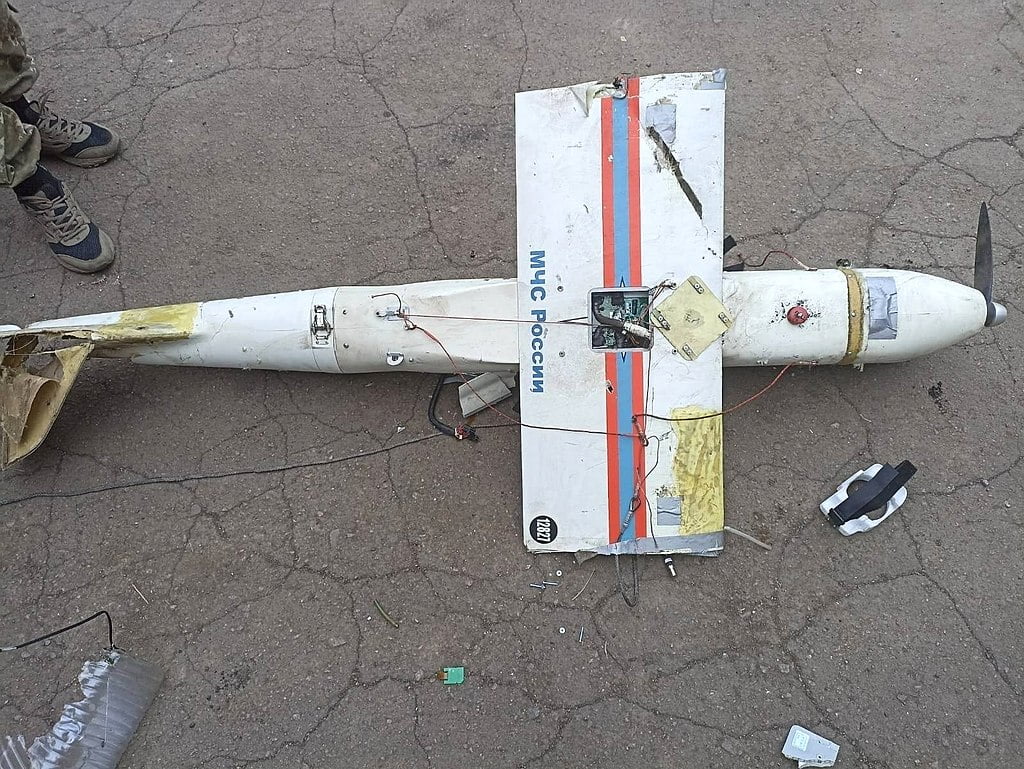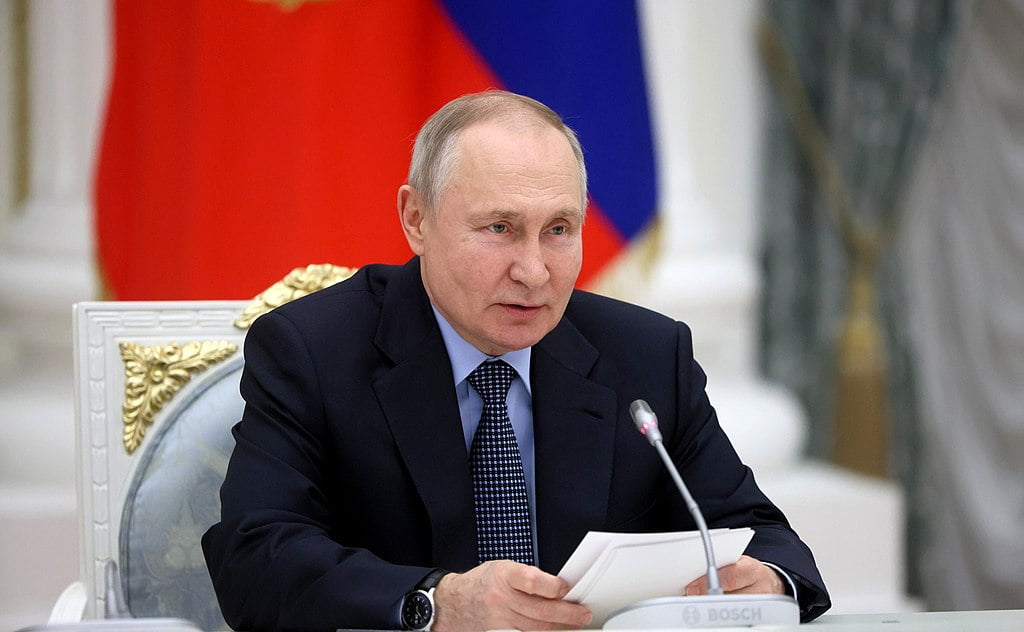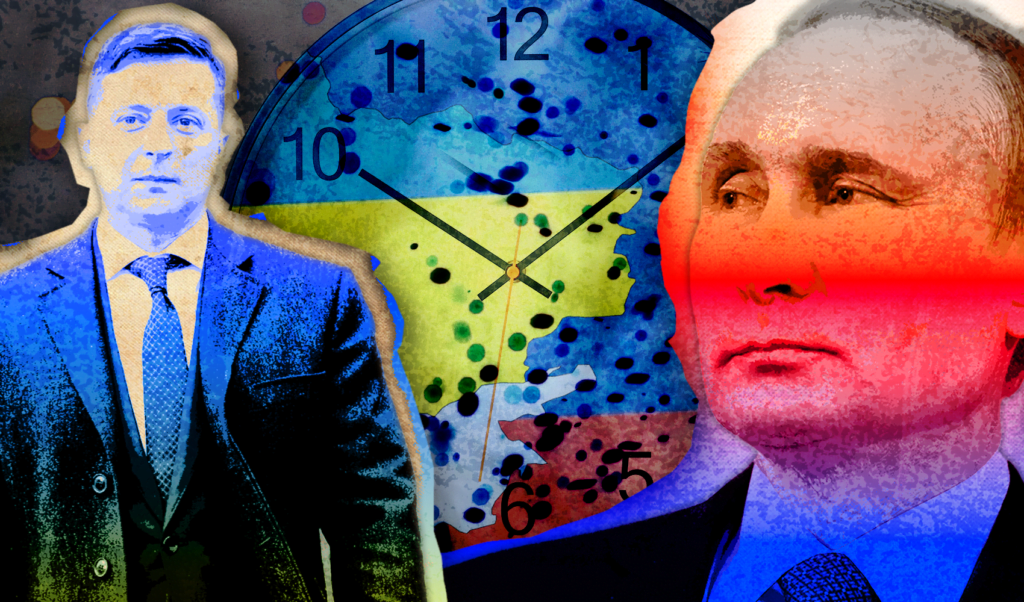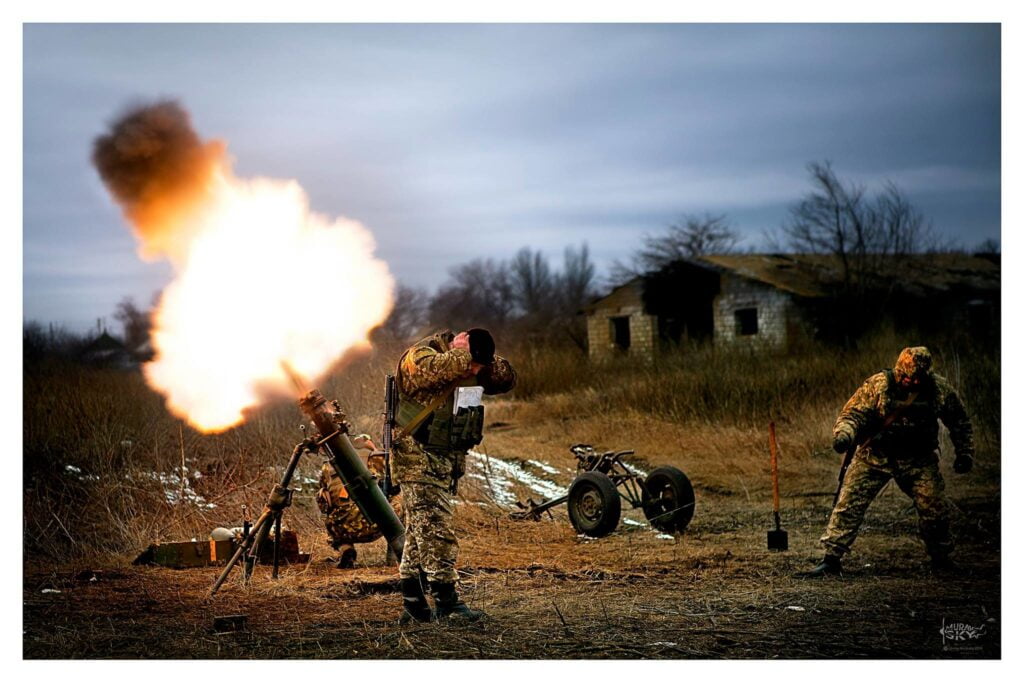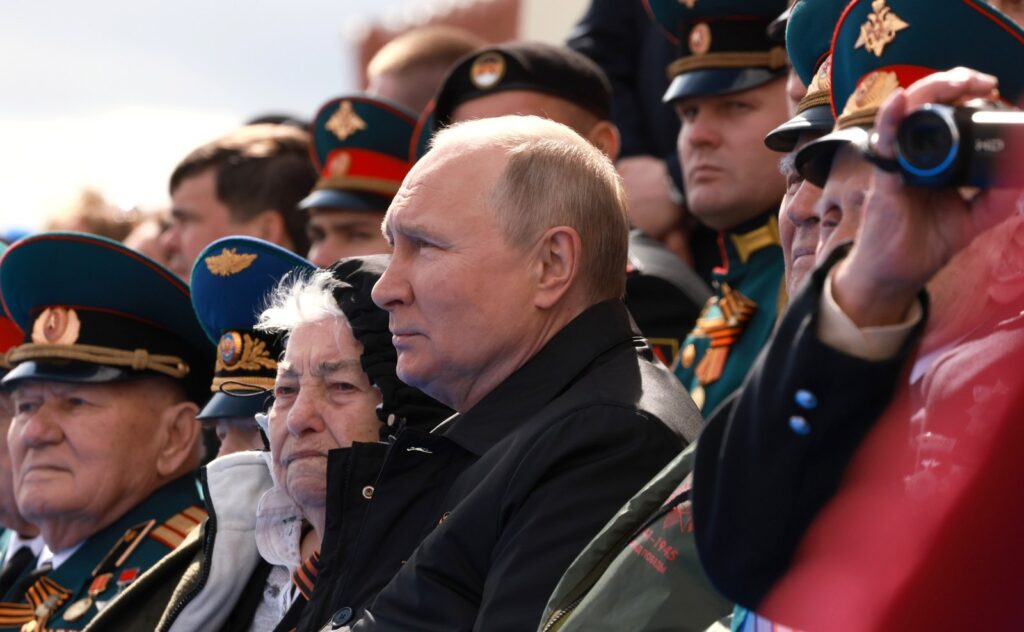Access to the internet, journalists and a charismatic leader have ensured Ukraine is winning the propaganda war against Russia.
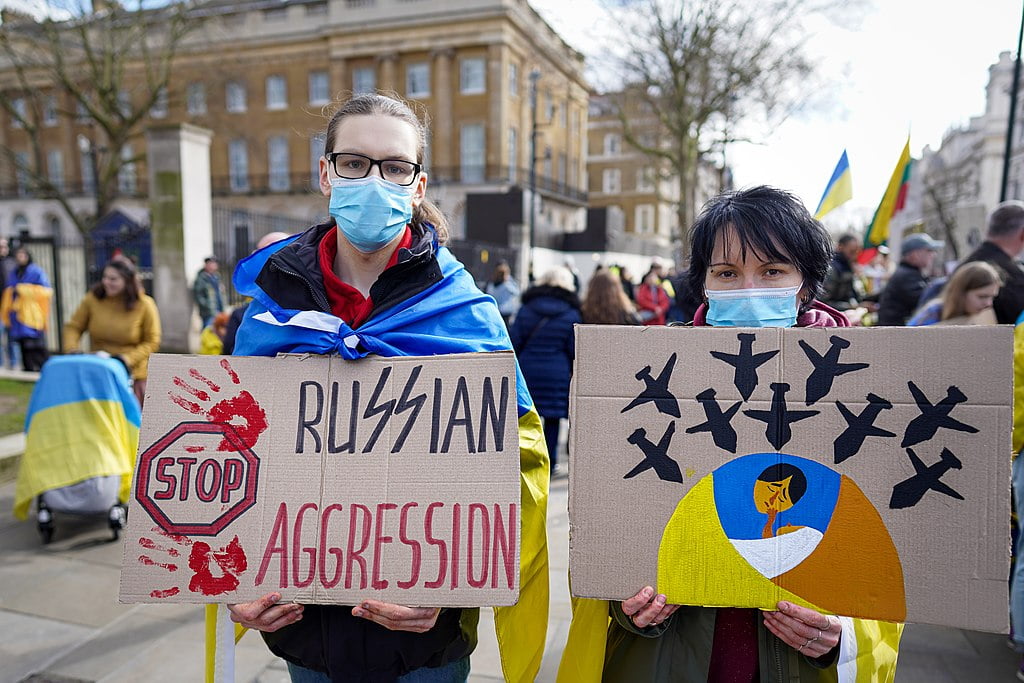 Russia’s invasion of Ukraine sparked protests all across Europe, a clear win for Kyiv in the media war. : Alisdare Hickson CCBY2.0
Russia’s invasion of Ukraine sparked protests all across Europe, a clear win for Kyiv in the media war. : Alisdare Hickson CCBY2.0
Access to the internet, journalists and a charismatic leader have ensured Ukraine is winning the propaganda war against Russia.
It may not seem like it when you’re far from a bomb shelter, cowering in your bathroom as missiles and drones rain death down on Kyiv, but the Ukraine war is the first real war of the digital age.
And while soldiers and civilians are killed each day, the biggest media war in the history of mankind is also being fought. As in any war, propaganda is a key ingredient.
As independent media from around the world has mostly accurately reported events, for Ukrainian journalists, February 24, 2022 was the day ‘propaganda’ ceased being a dirty word. Indeed, all the media in Ukraine is now part of the propaganda machine to one degree or another, because they work for the victory of Ukraine.
Twelve months ago, Russian media described President Vladimir Putin’s invasion as a “special military operation” to “denazify” Ukraine, which was painted as the aggressor, even as Putin massed hundreds of thousands of troops along the border.
When the attack came, Russian media did not report the bombing of civilian targets, hospitals, or atrocities against the civilian population. It tried to disguise the goals of the invasion and shift responsibility for the war and the resultant global food crisis to Ukraine and the West.
The majority of the Russian population seems to have bought into this narrative and supports Putin.
In the West, public opinion could not resist the anguish and heroism of Ukrainians, recorded by the world’s most prominent outlets. Thanks to western journalists, the world has seen evidence of Russian war crimes, such as the massacre of civilians in Bucha. This coverage has helped refute the slogans about the “denazification” and “demilitarisation” of Ukraine, used by Russia to justify its invasion.
What Moscow failed to consider is that almost 80 percent of the Ukrainian population is plugged into the internet. More than half the population owns a smartphone. Not even Russian propaganda had an answer for the thousands of amateur videos showing what really took place. The Ukrainian border guards on Snake Island, famously telling a Russian warship to “go f… yourself “. The defenders of Mariupol, encircled by Russian forces and living underground awaiting the inevitable, gave many interviews to Ukrainian and foreign journalists. Or President Volodymyr Zelenskiy recording his famous address to Ukrainians on his mobile phone, refuting reports that he fled or surrendered in the early days of the invasion.
It’s clear Ukraine is winning the media war.
Zelenskiy has become the star of the crisis. His communication skills and media background helped. In a televised address on February 24 ,2022, the first day of the full-scale invasion, he told Russian troops: “When you attack us, you will see our faces, not our backs, but our faces”. This defiant message kicked off a series of video messages that became his trademark.
He quickly managed to convince the West this was an ‘us’ or ‘them’ conflict. Ukrainians are fighting for our existence. We will stand until the end. We don’t have a choice. If Russia is allowed to win, it gives tacit approval to big nations aggressively bullying smaller nations. A world order based on rules would be destroyed.
Zelenskiy, a former actor and comedian, has surprised many with his leadership. He is greeted with a standing ovation in both houses of the British Parliament and, as a sign of respect, they stand and listen to his speech “Combat aircraft for Ukraine – wings for freedom”.
Zelenskiy is convincing the rest of Europe that its future lies with Ukraine, a belief few shared before the Russian invasion.
Ukraine could be considered lucky to get all this attention. After all, there is fighting every day in many other parts of the world. About 2000km from Kyiv, a simmering conflict between Armenia and Azerbaijan goes mostly unreported.
For the first time, the world’s eyes are focused squarely on Ukraine. In 2022, “Ukraine” was the most searched term on Google News. Ukraine was the state of the year according to The Economist. Zelenskiy and the “spirit of Ukraine” were recognised by Time magazine as the person of 2022.
But Ukraine is far from a perfect democracy. The government was hit by a wave of resignations related to corruption scandals. Ukrainian investigative journalists have helped fight corruption, and the reaction of authorities was clear, decisive and peremptory.
We learned from World War II that there is Goebbels’ propaganda and there is Churchill’s propaganda. There is propaganda from aggressors and those who are on the right side of history.
While Ukraine’s journalists have partially put aside impartiality in response to the national emergency, with the war moving into a protracted phase, new challenges will emerge. Under the state of emergency, Ukrainian journalists are now trying to find a balance between media freedom and national security interests.
Piskorska Galyna PhD is Associate Professor, Institute of Journalism, Borys Grinchenko Kyiv University, Ukraine and a visiting research fellow at the University of Melbourne. She is a member of the National Union of Journalists of Ukraine and has written more than 100 scientific and educational and methodological works, including 15 monographs and textbooks and been published in multiple foreign publications.
Originally published under Creative Commons by 360info™.


